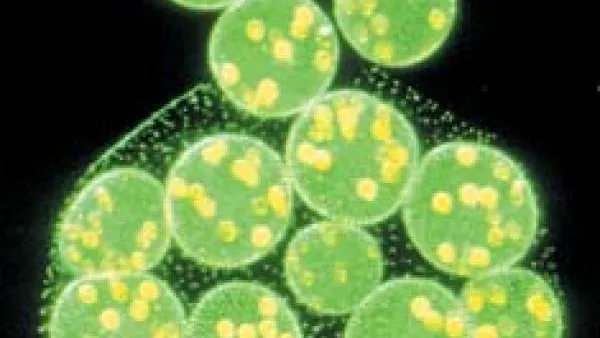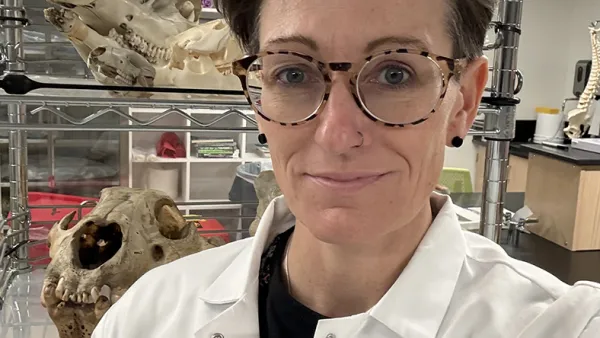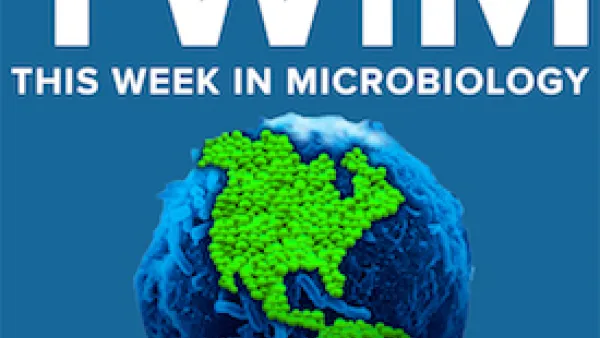The Department of Biology sat down with Daniel Berkovich, Washington University sophomore and recipient of an American Society of Plant Biologists Summer Undergraduate Research Fellowship, to reflect on the ten weeks he spent working in the Jez lab this summer.
Tell us about yourself.
I grew up in Chesterfield—a suburb of St. Louis—and I just started my sophomore year at Washington University. I have not officially declared a major yet, but I am fairly certain that I will be pursuing a degree in Molecular Biology & Biochemistry. I have been considering this discipline since high school, and my interests have only been reaffirmed over the course of this summer.
You received the American Society of Plant Biologists Summer Undergraduate Research Fellowship. What was your motivation for applying for this fellowship, and why did you choose to work in the Jez lab?
I actually started working in Joe’s lab three years ago, during the summer after my junior year of high school. I had been selected to be part of a program called STARS (Students and Teachers As Research Scientists), in which local students are paired with research professors in the St. Louis area. After the program ended, Joe graciously invited me to return to his lab the following summer, and I further continued my research in the Jez Lab as a first-year student at WashU. I learned about the ASPB fellowship my second semester, and I applied because it provided the opportunity to further develop my independent research skills, strengthen the concepts learned in introductory science classes at WashU, and network with like-minded peers and experts in the field.
What project did you work on this summer?
My summer’s project revolves around a class of enzymes called aspartate aminotransferases (AATs) from the plant Arabidopsis thaliana (thale cress). These enzymes transfer the amine group from their amino acid substrate, aspartate, onto their keto acid substrate, α-ketoglutarate. Thus, AATs are vitally important for both amino acid metabolism and nitrogen assimilation. Despite their significance, these enzymes have not yet been fully characterized in plants. In other words, their structure, function, and regulation are not well understood. My project attempts to investigate the operation of plant AATs using various biochemical methods, in order to gain a deeper understanding of this important class of enzymes.
What did your time in the lab this summer teach you about what it means to do research as a career?
I learned that conducting scientific research is rarely a straightforward process. Because my project aims to discover that which is yet unknown, there is little to guide my experimentation. There’s no manual. No instruction guide. So when experiments inevitably fail, it is up to the researcher to adapt to the situation. So while a career in research may have its challenges, it also encourages constant self-improvement and learning. Although this process might be frustrating at first, it becomes very rewarding when these adjustments eventually lead to success.
What did you find most challenging about your research experience?
As a type A person, I often find myself getting lost in the minutiae of developing experiments and conducting research. Whereas attention to detail can be a strength, I have noticed that it can also prevent me from focusing on the bigger picture. However, I am optimistic that my experience this summer has taught me how to better balance the particular and the comprehensive.
What did you find more rewarding about your research experience?
The most rewarding aspect about research is the element of discovery. Piles of textbooks and months of college lectures can make it feel like everything to be known about biology has already been established. But because I am working in uncharted territory, all acquired data reveals completely novel information—information that I am the first to discover. In this way, I am motivated to conduct my research not only because I find it personally interesting, but because it grants me the privilege to contribute to the greater scientific community.



